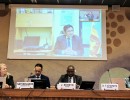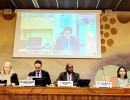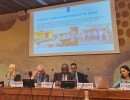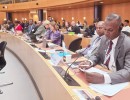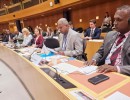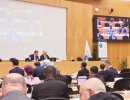Twelfth Meeting of States Parties to the Convention on Cluster Munitions
10 – 13 September 2024
Statement by Sri Lanka
Agenda Item 8: General Exchange of Views
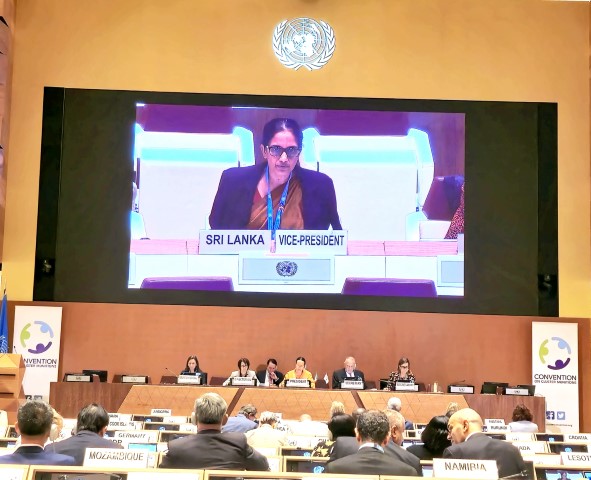
Madam President
Distinguished Delegates
Sri Lanka extends its warm congratulations to Her Excellency Francisca E. Méndez Escobar, Ambassador and Permanent Representative of Mexico for assuming the Presidency of the Twelfth Meeting of States Parties to the Convention on Cluster Munitions. I assure you the fullest support of the delegation of Sri Lanka in achieving a productive and meaningful outcome of this meeting.
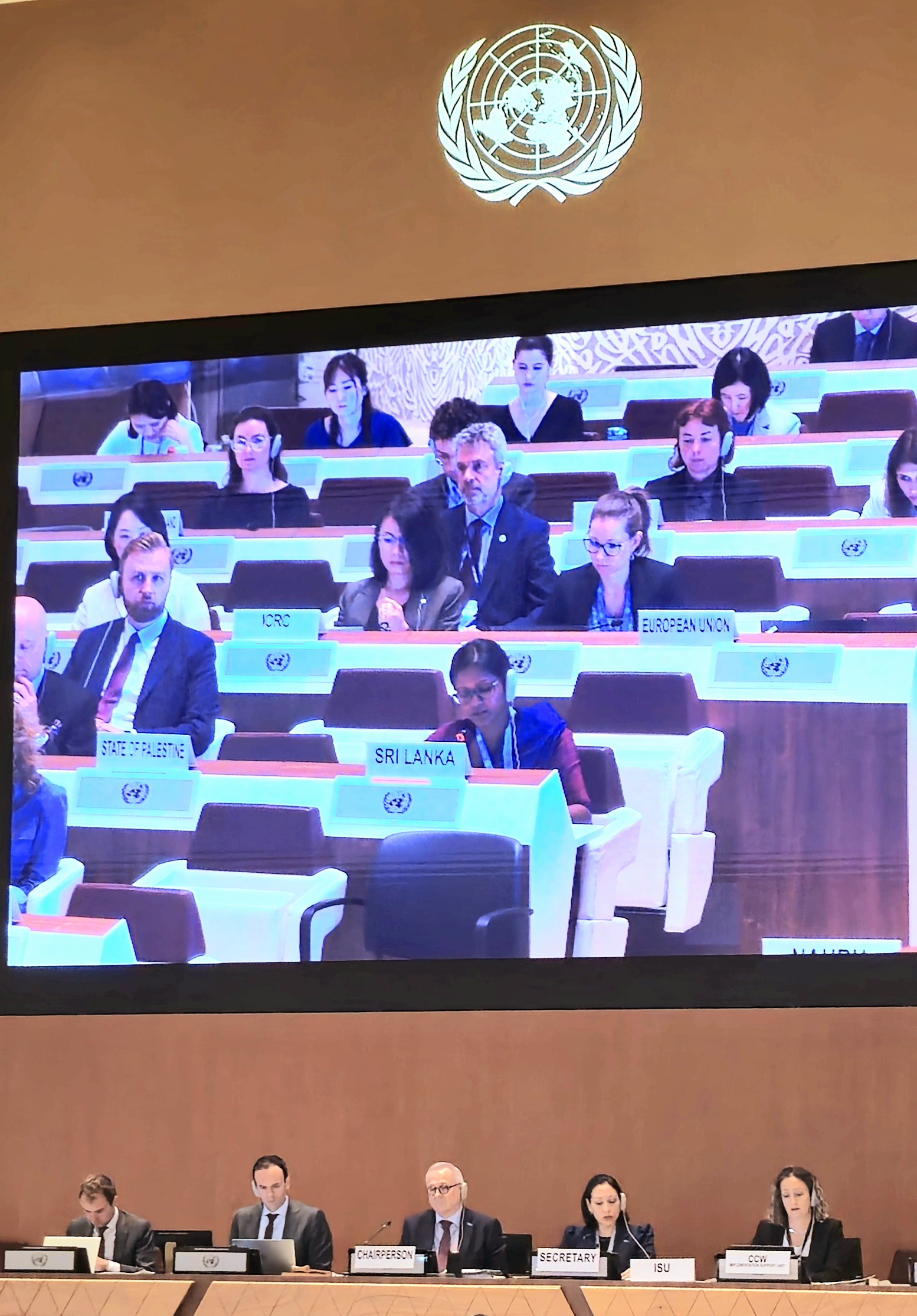
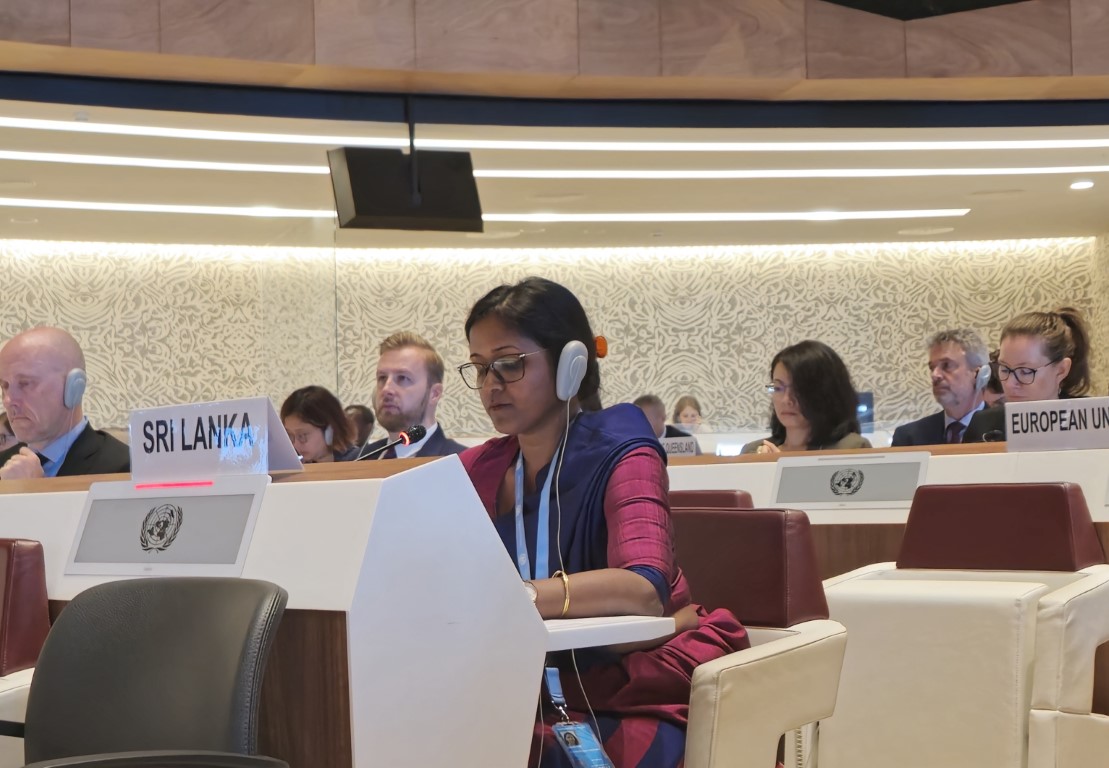
Statement by Sri Lanka
Second session of the 2024 CCW Group of Governmental Experts on Emerging Technologies in the Area of Lethal Autonomous Weapons Systems (GGE on LAWS),
26-30 August 2024
Agenda Item 5
Mr. Chair
Distinguished delegates
First, let me congratulate and express our gratitude to the Chair for the continued work in advancing the dialogue on Lethal and Autonomous Weapons Systems (LAWS) as well as for the preparatory work of the second session of the GGE on LAWS. We appreciate the ‘rolling text’ presented by the Chair on a set of elements of an instrument to facilitate the discussions of this session.
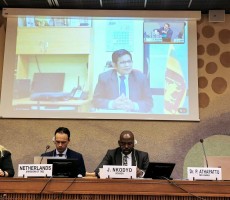
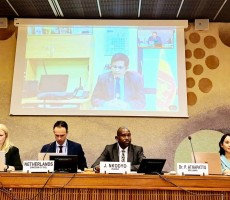
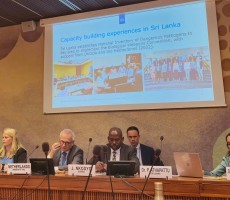
On 22 August 2024, Sri Lanka shared the lessons learned on the establishment of National Inventory of Dangerous Pathogens (NIDP) at a side event during the 4th session of the Working Group on Strengthening the Biological Weapons Convention(BWC) held in Geneva. Dr. Priyantha Athapattu, Director, Tertiary Care Services/Deputy Director General (Laboratory Services) of Ministry of Health joining the panel discussion online elaborated Sri Lanka's experience, challenges and best practices in implementing NIDP. The event was co-hosted by the Netherlands, Cambodia, Mongolia, Uganda and Sri Lanka.
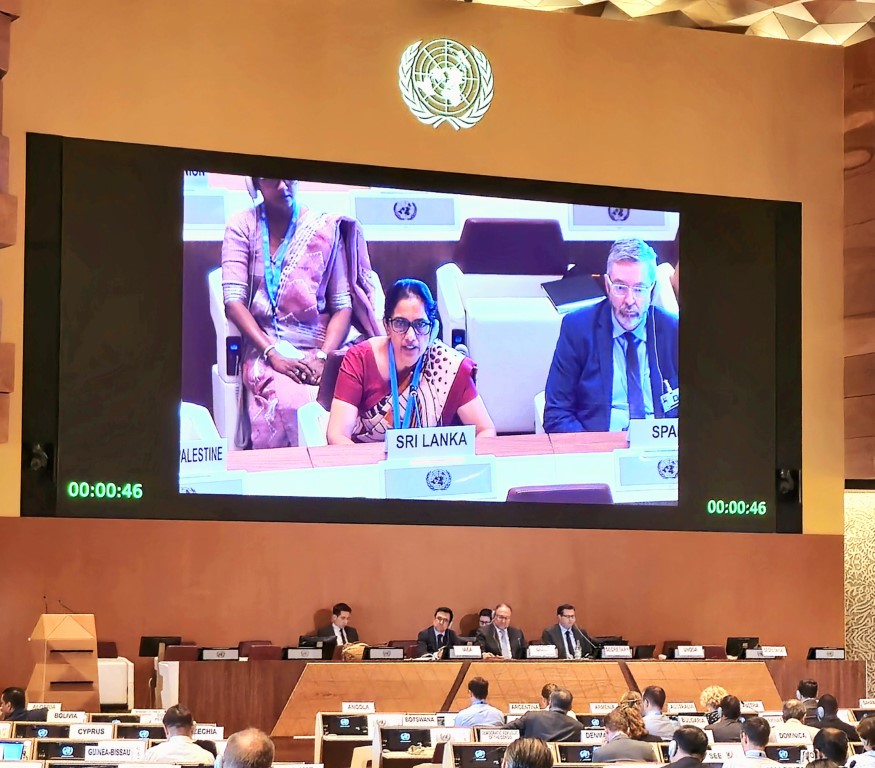
Statement by Her Excellency Himalee Arunatilaka, Ambassador and Permanent Representative of Sri Lanka to the United Nations in Geneva
at the 2nd Preparatory Committee for the 2026 Review Conference of the Parties to the Treaty on the Non-Proliferation of Nuclear Weapons, 22 July – 02 August 2024
Cluster 3 - Peaceful uses of nuclear energy – 30 July 2024
Mr. President,
Excellencies,
Distinguished delegates,
Sri Lanka is pleased to address the 2nd Preparatory Committee for the 2026 Review Conference of the Parties to the NPT under Cluster 3 and wishes to reaffirm our commitment to promote peaceful uses of nuclear energy and technology, as enshrined in Article IV of the Treaty.
Mr President, the world is at a critical juncture requiring the collective efforts of all stakeholders to address the increasing inequalities across the globe. We call on all Member States to uphold the ‘inalienable right of all the Parties to the Treaty to develop research, production and use of nuclear energy for peaceful purposes without discrimination’ as guaranteed by the NPT.
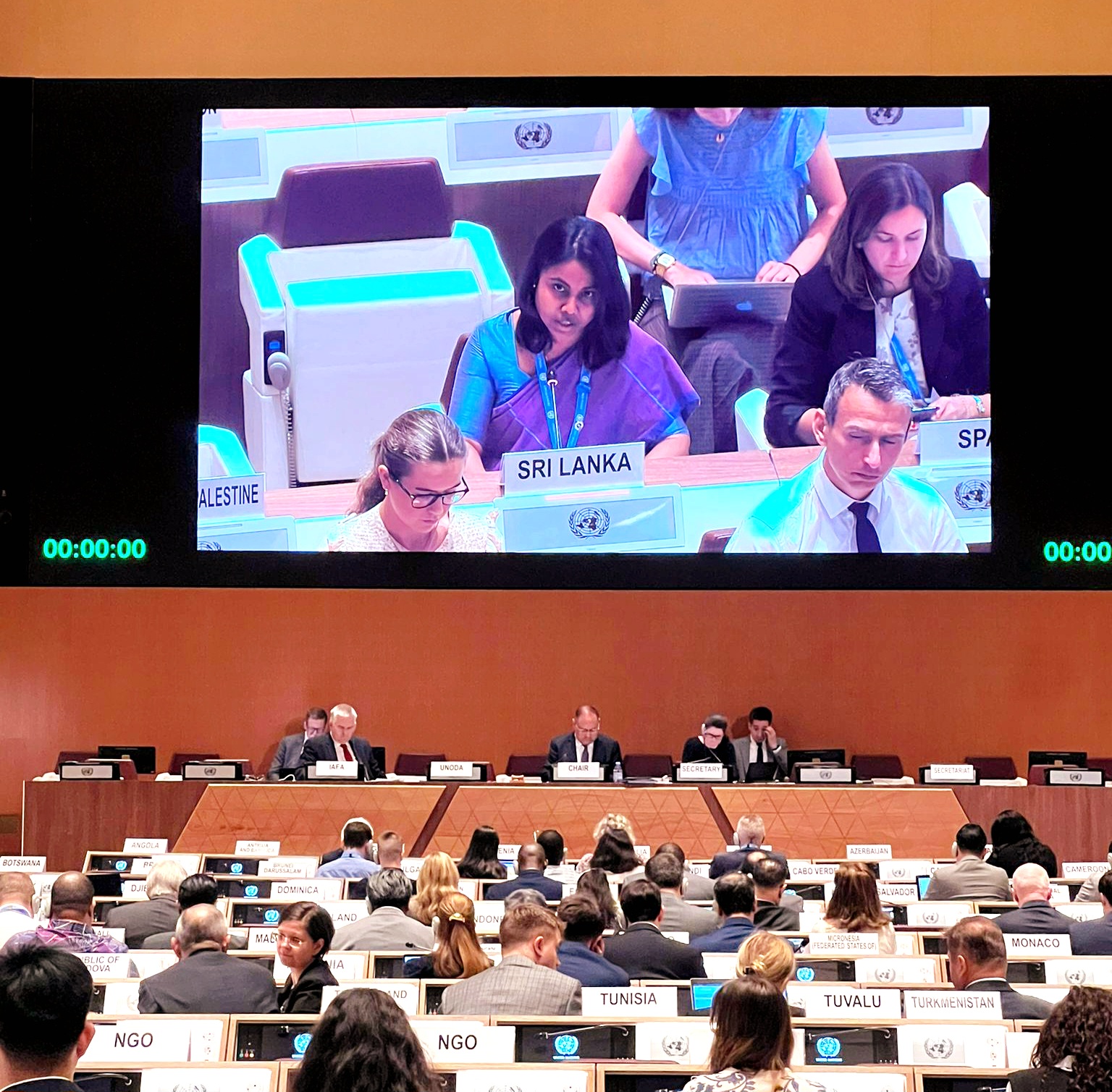
Statement by Sri Lanka at the 2nd Preparatory Committee for the 2026 Review Conference of the Parties to the Treaty on the Non-Proliferation of Nuclear Weapons, 22 July – 02 August 2024: UN in Geneva,
Item 4 - General debate on issues related to all aspects of the work of the Preparatory Committee
Mr. President,
Excellencies,
Distinguished delegates,
Let me begin with congratulating His Excellency Akan Rakhmetullin, Deputy Minister of Foreign Affairs of the Republic of Kazakhstan on assuming the Presidency of the 2nd Preparatory Committee. We trust your able leadership and ability to guide this forum towards a meaningful outcome and my delegation assures you of our fullest cooperation and support towards that endeavour.
The NPT is considered as the cornerstone of the disarmament and non-proliferation regime and it is a hard-won multilateral instrument to fight against nuclear weapons. Sri Lanka emphasizes the equal importance of the Treaty's three pillars: non-proliferation, disarmament, and the peaceful uses of nuclear energy in the implementation of the Treaty obligations.
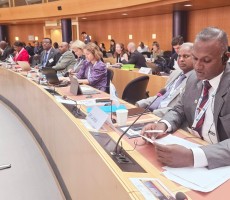
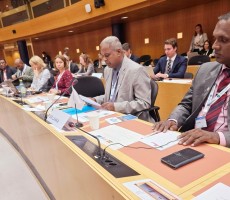
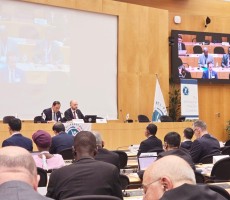
Mr. V. Premachanthiran, Deputy Director, National Mine Action Centre and Major M. T. A. P. L. Perera, Operation Officer of the Regional Mine Action Centre updated the progress of National Mine Action Completion Strategy and its commitments in comprehensive victim assistance programme at the Intersessional Meeting of the Anti-Personnel Mine Ban Convention (APMBC), on 18-20 June 2024 in Geneva.
- ‘Sri Lanka is a strong advocate for application of humanitarian principles in warfare and calls for regulation and prohibition of Lethal Autonomous Weapons Systems’ – Foreign Secretary Aruni Wijewardane at the Vienna Conference on Lethal Autonomous Weapo
- Statement by Her Excellency Himalee Arunatilaka, Ambassador and Permanent Representative of Sri Lanka to the United Nations in Geneva Thematic Debate of the Conference on Disarmament Agenda Item 2 – Prevention of nuclear war, including all related matters
- Statement by Sri Lanka at the First session of the 2024 CCW Group of Governmental Experts on emerging technologies in the area of Lethal Autonomous Weapons Systems (GGE on LAWS), 4-8 March 2024




